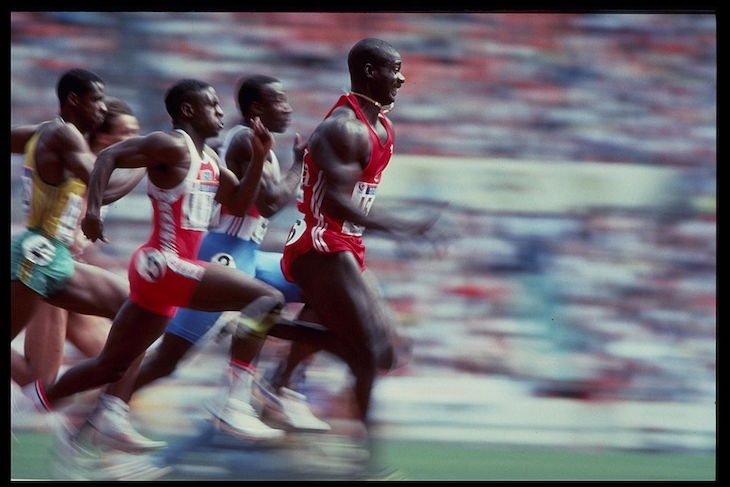If like me you’re convinced a lot of professional sportspeople are doped to the gills, perhaps you’re excited by the launch of the Enhanced Games – a proposed rival to the Olympic Games in which competitors will be encouraged to take as many performance-enhancing drugs as they can get into their bloodstream.
After all, if so many are already juicing – and, crucially, not being caught – why not just be open about it? That’s the argument being made by Enhanced Games founder and president Aron D’Souza – bizarrely the man who helped tech billionaire Peter Thiel to bring down the Gawker website – who not only seeks now to make drugs in sport acceptable, but also to paint anti-doping authorities as enemies of progress.
‘When used correctly, the inclusion of performance enhancements can have significantly positive effects on the results of training and exercise routines. Simply put, performance enhancements augment the effects of training,’ reads a statement from D’Souza on the Enhanced Games website.
We all know cheating in sport is rampant
‘After years of oppression, we are seeing a push-back against the anti-science dogma purported by the incumbent sporting leagues. Enhanced is here to free science and sport from those who would rather it be shackled.’
D’Souza, who says the first Enhanced Games will be held in December 2024, certainly has a point. Cheating does tend to give cheats an advantage. So why not simply legalise cheating, and let everyone reap the benefits without fear of sanction?
Besides, who can deny the public’s attitude toward doping in sport hasn’t shifted rapidly in recent years toward acceptance? I’m not sure anyone who regularly watches high-level sport today any longer believes that athletes – from footballers and tennis players to track and field stars – refrain from taking performance-enhancing drugs (PEDs) on an industrial scale, or can manage to work up much of a sweat about it.
It’s worth pointing out disgraced sprinter Ben Johnson’s world record time of 9.79 seconds for the 100 metres at the 1988 Seoul Olympics, cancelled after he was found to be brim-full of anabolic steroids – an event that at the time caused global outrage and astonishment – would not today be in the top ten quickest legal times.
But just because cheating is hard to stop doesn’t mean we must accept it. The reason I don’t think the Enhanced Games will be enlightening is because it will not tell us about our species, and by extension about ourselves. Ultimately, this is what sport exists to do: to show us of what the human body – that thing that each of us possesses – is capable.
Of course, the playing field for athletes is not, and never has been, level – but that has always been the point of competition. The argument that performance enhancing drugs should be permitted because not all athletes are the same – that some, for example, have naturally higher levels of testosterone than others – is utterly spurious.
It’s so obvious it hardly needs stating, but sport exists solely to celebrate this advantage. In any discipline, we seek only to discover who is the fastest, or the strongest, the most accurate or the most coordinated. What’s absolutely crucial, at least as far as retaining spectator interest goes, is that the advantage is natural.
By legalising unnatural or synthetic substances, human competitors will quickly become subsumed by, and mere vessels for, scientists – in exactly the same way engineers are of vastly more importance than drivers in Formula 1 races.
It’s also true that by legalising performance enhancing drugs, at a stroke sport severs all contact with its own history. Were doping to be legalised in the Olympic sports of tennis or boxing, for example, then no longer could we meaningfully compare the greats of the past with the champions of today. Is that progress?
By the same token, when I run ten kilometres in the park, I am able to compare my time with that of elite runners and marvel at the difference between us. But if I know for certain they’re on drugs, then of what relevance is their speed to me? They may as well be on wheels.
The number of people who watch athletics has been declining for years. I believe this is partly because no one believes what they’re seeing. We all know cheating is rampant – there are loopholes in the drug tests – and so the whole thing is a charade.
The answer is not to capitulate to cheats, but rather to go back to basics – to ban the ingestion of any substance that couldn’t be found in a well-stocked supermarket – and, by doing so, restore the universality and relatability of sport.
Investing in anti-doping tests that work exquisitely – not by doing away with them altogether – is the only way to save sport.






Comments